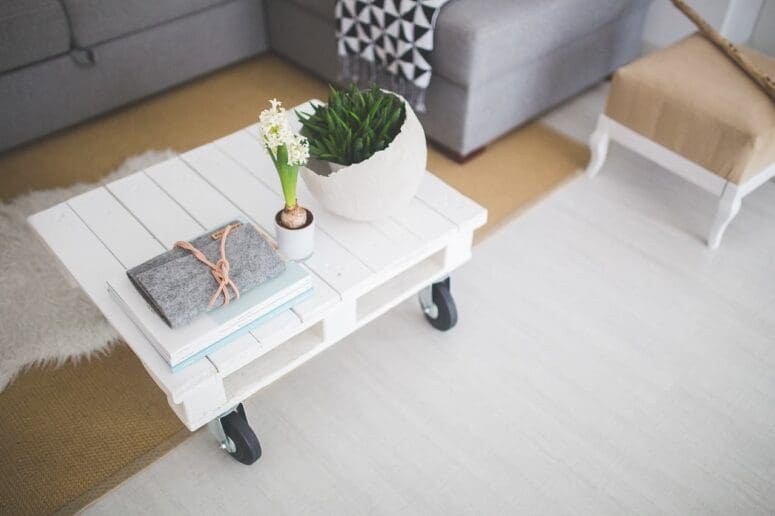Should I Rent or Sell My House? Let Our Q&A Help You Decide
- Published on
- 3-5 minute read
-
 Jonathan Deesing Contributing AuthorClose
Jonathan Deesing Contributing AuthorClose Jonathan Deesing Contributing Author
Jonathan Deesing Contributing AuthorJonathan holds an MBA from the University of Utah and is a writer and content specialist. He has written for Homes.com, ASE.org, ForRent.com, Inman, Zillow's Porchlight, RISMedia, Auction.com, and more. He currently resides in Salt Lake City, Utah.
The real estate market is hot right now and poised to get hotter. If you’re looking to sell your home, you’re entering one of the strongest seller’s markets in history and demand for housing continues to grow.
Why on earth would you choose to rent your home right now instead of sell it?
Jumping into the world of real estate investment, renting, and tenants is a big decision with serious implications; you need to clearly define why you want to rent your house instead of selling it to determine if renting is really the right decision.
In the hopes of talking you out of renting out your house and into selling your house, let’s go through three of the most common reasons we hear from people about why they chose to rent and dig into the logic a bit.

I Want to Generate Some Passive Income!
There’s a reason why rentals are typically referred to as investment properties – this is their primary function. Investing in real estate beyond your own home is an appealing venture; it’s more tangible than the stock market and it’s something you already know.
For those seeking financial independence, a passive source of income like rental property is ideal. What’s more, if you buy another home for yourself, you’re building equity in two properties, while only paying a single mortgage. Heck, if you’re bringing in enough cash from your rental, you can put it toward your own mortgage.
And Yet…
The finances of a rental property are far beyond what first-time landlords typically expect. Before you sign on the dotted line with a property manager, get the answers to these basic financial questions:
What is the average rent in your area?
Simply call every For Rent sign you see in your neighborhood and ask for their home size and monthly rent. This will give you a rough idea of what you can charge.
Does rent in your area cover your mortgage?
This one is essential unless you can afford to pay for part of the mortgage as well as your own.
Can you handle paying the mortgage for the months between tenants?
Even experienced landlords need time to give a property a good turn between tenants – there’s a lot that needs to be done. Not to mention the process of actually finding a new tenant, which can require marketing and advertising.
Do you have money set aside for major projects like a new roof?
Living in your own home, you may tolerate a leaky roof, but a tenant will not. Make sure you can afford major fixes or it could cost you tenants and rental income in turn.
Can you afford a property manager?
Property managers handle the vast majority of headaches for property owners. However, they do cost more (generally between 8-12% of the monthly rental value) than managing the property yourself.
Beyond these basic questions, there are tax implications and expenses you should discuss with both a real estate agent and accountant before you make a decision. As you can see, rental property income is pretty far from “passive.”

I Love My House & Don’t Want to Give it Up
It’s easy to become attached to your home, which can make sentimental homeowners hesitant to sell even when they need to move. The idea of renting a beloved home in lieu of selling is attractive because it allows you to keep an eye on the property and perhaps even rent it to a family member.
Unfortunately…
This desire to protect a home by renting it can easily backfire. Renters are notoriously hard on homes and if you love the home you’re renting out, this may be too hard to watch.
If you’re considering renting vs. selling a home for sentimental reasons, make sure you understand the financial, legal, and tax implications of your decision – renting a home you love and care about is the definition of mixing business with pleasure.
Do You Have the Stomach to Be a Landlord?
Regardless of why you’re considering renting your home, it’s also important to consider if you really want to take on the tasks associated with managing a rental property.
Here are just a few annoyances you’ll be responsible for:
Keep Your Phone Nearby:
Even if you have a full-time job, you’ll likely be on-call 24/7 for emergencies. If a pipe bursts or the power goes out – you should expect a call.
Be Prepared for Upkeep Costs:
You’ll have to establish a plan to maintain the property, from lawn care to snow removal. Just mowing the lawn means you’ll need to either hire a service, cart your own mower over there, or purchase another mower to stay at the property.
Make Sure to Get a Security Deposit:
Renters could very well destroy your property. As mentioned above, renters will likely not treat your home as well as you do. And sometimes, you only see the extent of it when getting the home ready for the next tenant.
Becoming the Collections Office:
You may need to have difficult conversations with tenants. Pestering someone for a late rent payment is never fun and evicting them is even worse. But renting a property is a business and most times, these difficult decisions will be on your shoulders.
Consider these responsibilities (and any others) in terms of your time. Figure out how much you could be making per month from tenants and calculate if it’s worth it – you may spend anywhere from 5 to 40 hours per month on the property.

I’m Planning for the Future – the Markets Will Be More Favorable Then
Oh so you’re one of the clever ones. You realized that rentals allow you to double dip your real estate investment – the property appreciates while you’re still collecting rent. Break even on the mortgage or even pocket some cash, all while you build equity in a property that’s increasing in value over time.
Savvy.
If your finances are in order, this may be the best reason to rent instead of sell your home. Indeed, even as the market favors sellers, strong home price growth is expected in the next year, which means that waiting could net you even more money on a home sale.
However…
You’ll still need to research your local market, paying close attention to recent trends. You should find a top real estate agent in your area and pick their brain about what neighborhoods or regions are the best investments.
Real estate is great to have in any diversified investment profile, and you’ll never know an investment better than a home you previously lived in.

So, Do You Still See a Landlord in the Mirror?
As you can tell, there are myriad considerations to be made before you decide to rent or sell your home. And once you’ve spoken to your local real estate pros, you’ll probably find another slew of questions that need answering. Renting out a home is hard and in today’s strong market, probably not your best option. Indeed, with some warning of a potential downturn, selling while prices are high is likely your best option.
But if you do decide to rent, do your homework, save your money, and get ready to unclog some drains.
